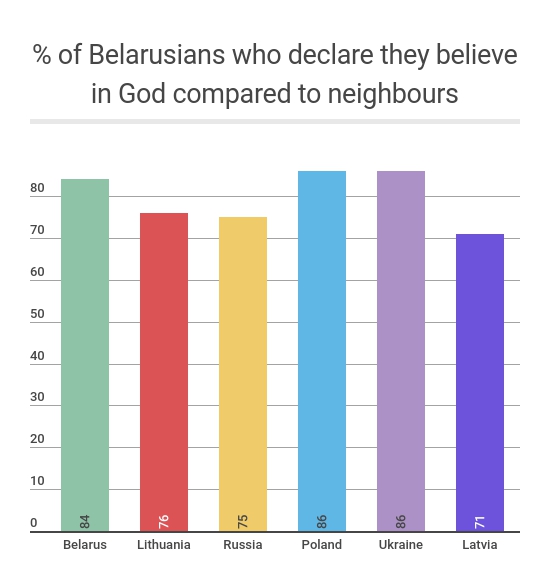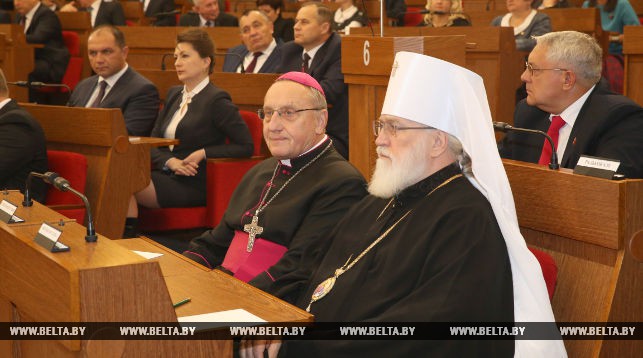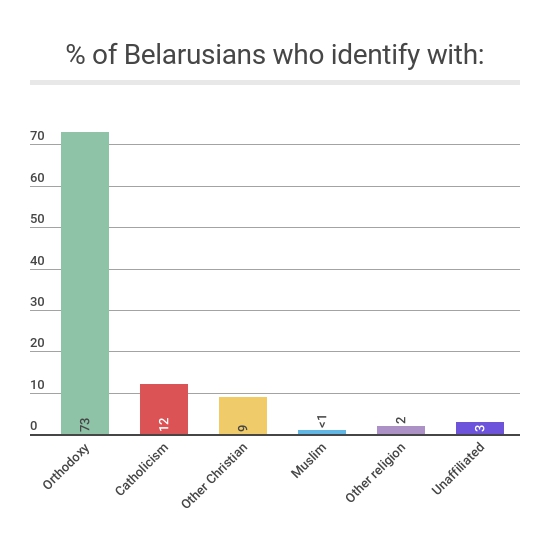Can new companies replace state giants in Belarus?

Image: Belarus.by
Deputy Prime Minister Uladzimir Syamashka recently announced that full-cycle car production is to start in Belarus this month; this will be a first for the country. So far, only Chinese-designed cars have been assembled in Belarus.
Meanwhile, the holding Amkodor presented its first tractor at the Belagro exhibition on 6-10 June in Minsk. This means that the Belarusian government has made another concession to the privately-owned holding, allowing it to challenge the national industrial giant MTZ, which has manufactured tractors for many decades.
As most major Belarusian machine-building firms such as MAZ and MTZ struggle with problems, the government supports them to avoid social disturbances. Nevertheless, it also supports new projects, which create competition for existing enterprises and thus tacitly change the political economy of the state.
Chinese cars for Belarusian public servants
Once, there was a private-sector initiative to launch joint car production with the American company Ford and the Iranian company Iran Khodro. Both projects were terminated after assembling only several hundred cars. Thus, the forthcoming launch of a full-cycle car production factory makes the joint Belarusian-Chinese project a remarkable achievement.
 Assembly production of Chinese-designed Geely cars began in Belarus in 2013. The new factory, near the city of Barysau, is set to reach a production level amounting to 60,000 cars a year by the end of 2017.
Assembly production of Chinese-designed Geely cars began in Belarus in 2013. The new factory, near the city of Barysau, is set to reach a production level amounting to 60,000 cars a year by the end of 2017.
From the outset, the government has emphasised that 90 per cent of these cars would be exported. Some exports to Russia and Kazakhstan have succeeded, albeit perhaps with Beijing's assistance.
However, Minsk has also taken measures to ensure sales within the country. In April 2016, president Lukashenka announced that 'There will be no imported cars for civil servants, except for the prime minister, vice premiers, and top-ranking officials,' and stipulated that only Geely cars manufactured in Belarus be used for state needs. Moreover, as Tut.by noted, the new law regulating taxi firms looks as if it compels taxi drivers to buy Geelys.
Shakutin rising
Another new project in the machine-building sector involves launching the production of a tractor by the holding Amkodor; this will compete with models offered by MTZ, a state-owned firm. The government has not only allowed Alyaksandr Shakutin, a co-owner of Amkodor, to challenge MTZ, it even intends to use Chinese loans to fund the project, including construction of a new plant.
At first glance, this seems logical. Belarusian authorities consistently support the rising business empire of Shakutin. For example, on 24 May, Industry Minister Vital Vouk remarked on Shakutin's holdings Amkodor and Saleo's intention to invest $2.1bn in further expansion in 2016—2030.
Both holdings have enjoyed success. Saleo was established by Shakutin and his partners in 2014 as a firm producing hydraulics for mobile machinery which had earlier been imported. By now, as Vouk emphasises, 30-60 per cent of necessary hydraulics are manufactured in Belarus.
A patriotic business?
 Shakutin emphasises that his business is all about manufacturing and insists on his patriotism.
Shakutin emphasises that his business is all about manufacturing and insists on his patriotism.
The Belarusian web-portal Tut.by, however, has pointed out that a very large share of his firms' sales involve Belarusian state purchases. He has also acquired several formerly state-owned enterprises without competition and for little money. Likewise, Shakutin used to employ a number of formerly high-level Belarusian state officials, such as Lukashenka's former economy assistant Siarhei Tkachou, BRSM (a pro-government youth union) leader Alyaksandr Nakhaenka, MAZ director Mikalai Kasten', transportation minister Ivan Shcherba, and others. This obviously strengthens his ties to the government, Tut.by points out.
Shakutin responds to these comments by emphasising his efforts to export, underlining that the factories he bought were destitute and he salvaged them. He also claims that he employed former officials because of their superb managerial qualities.
Nevertheless, Shakutin's ties to the government are obvious. For many years, he worked in the upper chamber of the Belarusian parliament and held a key role in the organisation of the pro-goverment Belaya Rus' movement. There has even been talk of EU sanctions, as he is 'Lukashenka's oligarch.' However, this is an unfair characterisation, as Shakutin is merely a tool for the Belarusian leadership.
MTZ vs. Amkodor
The government's decision to allow Shakutin to launch a project which could have an adverse impact on a Belarusian state-run company must be understood in context. A number of older, state-owned companies are seriously struggling. While three years ago MAZ was producing 24,000 trucks a year, this year the enterprise expects to manufacture less than 11,000.
 The government plans to provide financial support for the branch. On 24 May, Deputy Prime Minister Syamashka announced that the government was to invest $500m in MAZ, and $645m in Homselmash, an agricultural equipment manufacturer. For 2016-2030, MTZ needs $1.1bn of investments and has almost no funds of its own.
The government plans to provide financial support for the branch. On 24 May, Deputy Prime Minister Syamashka announced that the government was to invest $500m in MAZ, and $645m in Homselmash, an agricultural equipment manufacturer. For 2016-2030, MTZ needs $1.1bn of investments and has almost no funds of its own.
It will take Minsk a significant amount of money to develop the plant, but the struggle may succeed. The case of BelAZ has served as an example for the Belarusian government: it invested $800m into the firm, which manufactures huge trucks. As a result, BelAZ developed new models and succeeded in increasing its share on the global market, which is now estimated at almost 30 per cent.
Between Russia and China
Where exactly Minsk will find the money to invest in its machine building industry remains unclear. Government officials refer, inter alia, to Chinese loans; recent contacts with Beijing also support this hypothesis. Less clear is how Minsk will involve Russia in developing Belarusian industry: will it strive to limit cooperation or will it be willing to give the Russians anything if they can save companies from bankruptcy?
Most probably, the government policy on Russian involvement will remain ad hoc and pragmatic. On 24 May, Deputy Prime Minister Syamashka revealed that during the recent Belarus-Russian negotiations on oil and gas, the two governments agreed to prepare proposals on three industrial integration projects – these concern the petrochemical and machine building enterprise.
 In 2011—2014, Belarus and Russia had already agreed on five industrial integration projects involving the Belarusian firms MAZ, Intehral, MZKT, Pelenh and Hrodna Azot. In recent years, however, Minsk and Moscow have kept silent on these projects.
In 2011—2014, Belarus and Russia had already agreed on five industrial integration projects involving the Belarusian firms MAZ, Intehral, MZKT, Pelenh and Hrodna Azot. In recent years, however, Minsk and Moscow have kept silent on these projects.
Minsk will certainly use cooperation with Russia to develop its machine building sector, but the Belarusian government is considering all its options. Thus, the authorities are promoting new privately-owned production projects. In the future, these could replace giants like MTZ. In addition, Minsk hopes to use China as a source of loan-funding and technology.
In general, the development and state support of major Belarusian businesses such as Shakutin's holdings resemble the famous post-WWII South Korean business conglomerates called chaebols, the most famous of which are Samsung and Daewoo. These helped the government adapt and develop the national economy in exchange for state support.




 Eastern Orthodoxy dominates throughout the region, and this holds true for Belarus as well. As the study shows, 73% per cent of Belarusians identify themselves as Orthodox, 12% as Catholics, 3% declare no affiliation, and 12% are affiliated with other confessions.
Eastern Orthodoxy dominates throughout the region, and this holds true for Belarus as well. As the study shows, 73% per cent of Belarusians identify themselves as Orthodox, 12% as Catholics, 3% declare no affiliation, and 12% are affiliated with other confessions. In contrast, only 22% of Ukrainians agree with Russia's need for a natural geopolitical buffer zone, most likely due to the ongoing conflict between the two countries. In other neighbouring countries, such as Poland and Lithuania, significantly fewer people support this view (in both cases 34% of the population).
In contrast, only 22% of Ukrainians agree with Russia's need for a natural geopolitical buffer zone, most likely due to the ongoing conflict between the two countries. In other neighbouring countries, such as Poland and Lithuania, significantly fewer people support this view (in both cases 34% of the population). When it comes to public initiatives, the churches are able to speak the same language. For example, they are all involved in the pro-life movement. The newspaper Naša Niva reports that in 2013, the Belarusian Orthodox Church, together with the Catholic Church, Belarusian Christian-Democracts, and other civic organisations, supported a rally against abortion.
When it comes to public initiatives, the churches are able to speak the same language. For example, they are all involved in the pro-life movement. The newspaper Naša Niva reports that in 2013, the Belarusian Orthodox Church, together with the Catholic Church, Belarusian Christian-Democracts, and other civic organisations, supported a rally against abortion.
